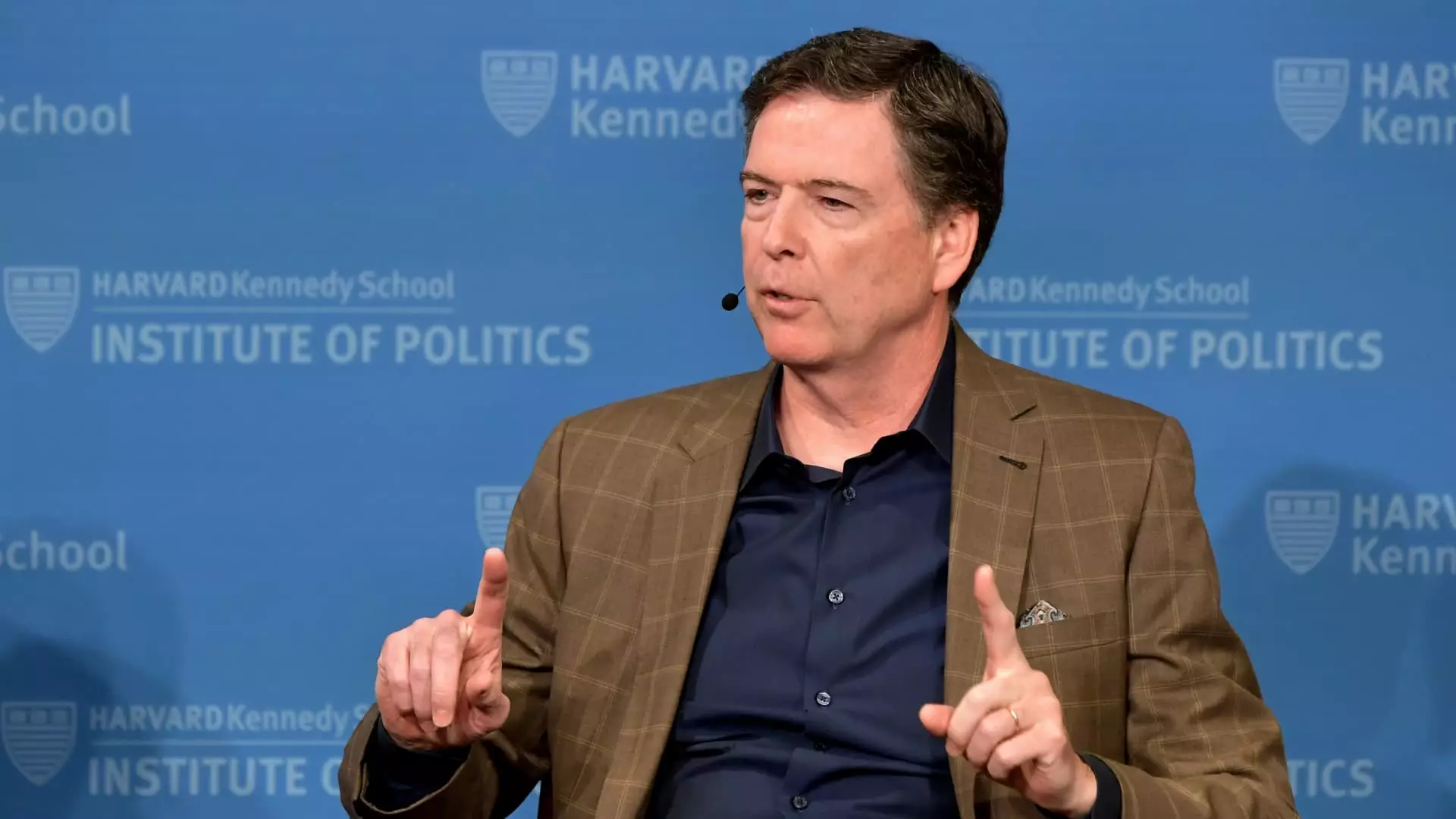In a shocking twist of events, former FBI Director James Comey has ignited a political firestorm with a social media post that U.S. officials have interpreted as a call for violence against President Donald Trump. This incident raises serious questions about public discourse in our fractured political landscape and the implications of incendiary language. The post, now deleted, featured a cryptic image that some interpreted as encoding a threat against the sitting president, illustrating the dire consequences that can arise from misunderstood or reckless social media expressions.
Homeland Security Secretary Kristi Noem, echoing the sentiments of many in the Trump administration, swiftly condemned Comey, stating that the Department of Homeland Security and the Secret Service are investigating the matter. The interpretation that “8647” represents a dark insinuation—based on the informal slang usage of “eighty-six” as to “get rid of”—has fueled a divide in public sentiment, pitting defenders of political free speech against those insisting on accountability for provocative rhetoric.
Political Fallout and Reactions
The reaction from Republican lawmakers and Trump’s allies was predictable and vigorous. Accusations flew, with political figures openly calling for Comey’s arrest or heightened investigations into his motives. This incident reflects a broader trend: political figures are more often resorting to inflammatory rhetoric to rally supporters or undermine opponents. The urgency of these reactions unveils a pervasive culture where every utterance is dissected for potential malice, chiefly in an era where social media serves as both a megaphone and a trapdoor.
Donald Trump Jr.’s claim that Comey was “cautiously calling for my dad to be murdered” stokes the flames of paranoia and division. Such rhetoric distills nuanced discourse into a binary conflict, further entrenching factions rather than fostering constructive dialogue. It underscores a disturbing trend where the mere suggestion of threat is enough to instigate serious consequences without offering room for clarity or context.
The Dangers of Misinterpretation
Comey’s defense, stating that he did not perceive his post as threatening, points to a troubling reality: the increasing propensity for language to be misconstrued in politically charged environments. In an age dominated by rapid communication and social media’s immediacy, minor incidents can escalate catastrophically, as seen with this incident. The vast interpretative space surrounding social media posts emphasizes the responsibility of public figures to communicate with precision. However, it is equally crucial for audiences to exercise discernment and resist knee-jerk reactions that can lead to wrongful accusations and potential harassment.
Interestingly, this controversy can lead to reflections on the nature of leadership and accountability. Should Comey be held to a standard of behavior commensurate with his previous role as FBI Director? Many argue that as a former top law enforcement official, his words bear an extra weight. Conversely, the principle of free speech must be defended, even when it comes from controversial figures. The dilemma here isn’t just about Comey’s intentions but rather illustrates a significant tension in American political culture, wherein the perceived threat looms larger than possible intent.
Historical Context: A Pattern of Hostility
The historical context is necessary to comprehend the broader implications of this incident. The Trump administration has consistently faced threats from various corners since its inception, with rhetoric that has at times been inflammatory. The shift in political discourse over recent years signals a dire need for recalibration. Political figures must anchor their dialogue in a paradigm that encourages dialogue, rather than distrust, to heal rifts borne of years of division.
Since Trump’s election, there has been a disconcerting pattern of enemies and allies drawing battle lines, often resulting in personal vendettas rather than substantive political achievements. Politicians dedicated to serving constituents ought to cultivate environments where political differences lead to discussions rather than fears of violence. If our political figures cannot rise above the fray and indulge in dignified discourse, what hope do ordinary citizens have of engaging in constructive conversations?
As the investigation unfolds and opinions clash, one truth remains: our national dialogue is riddled with the potential for misunderstanding and violence. Political actors must prioritize clarity and responsibility in their messaging while citizens engage with a more critical eye toward protecting the integrity of discourse itself. Otherwise, we risk tumbling ever deeper into a cycle of retaliatory discourse, laden with mistrust and perilous consequences.


Leave a Reply